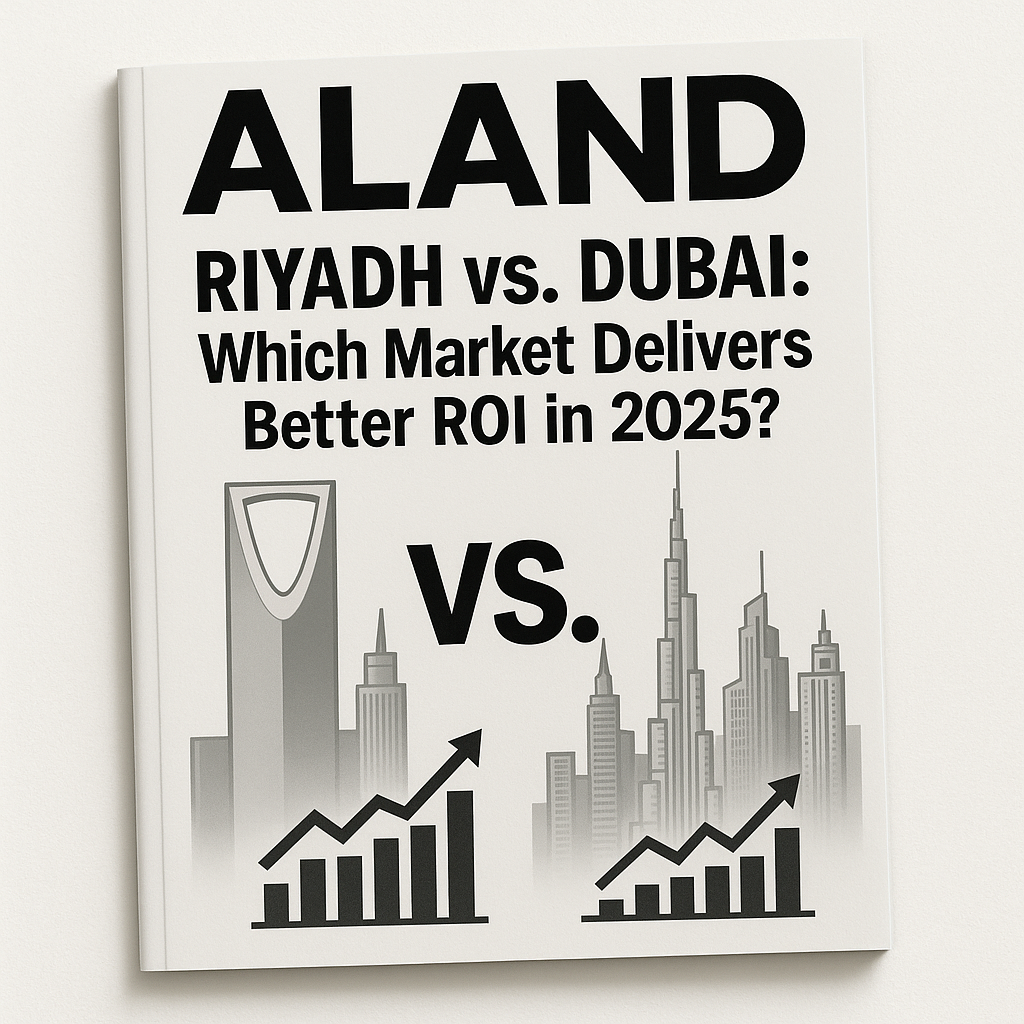Riyadh vs. Dubai: Which Market Delivers Better ROI in 2025?
- Published Date: 17th Sep, 2025
-
4.8★ ★ ★ ★ ★(78)

Riyadh’s real estate market is entering 2025 with bold government-led transformation projects such as Vision 2030 and giga-developments like NEOM, which aim to diversify the economy away from oil. This surge in infrastructure and lifestyle investments is drawing international corporations and high-net-worth individuals eager to benefit from a market in its formative growth phase. Dubai, on the other hand, positions itself as a mature, globally connected hub with a proven track record of high-yield returns in luxury real estate, logistics, and financial services. The comparative advantage lies in Riyadh’s growth potential versus Dubai’s stability and global trust.
Dr. Pooyan Ghamari, Swiss economist and Founder of the ALand Platform, emphasizes that ROI in these two cities is not just measured in property value appreciation but in how investors align with macroeconomic signals, government incentives, and the branding power of regional hubs. He highlights that Dubai’s cosmopolitan model offers immediate liquidity and credibility, while Riyadh’s market rewards early movers willing to embrace long-term structural growth.
Cause-Related Marketing and Brand ROI
Dr. Ghamari argues that in both markets, corporate strategies that incorporate cause-related marketing—such as sustainability-driven housing, social infrastructure, or tech-for-good investments—generate higher ROI than purely financial models. According to insights from ALand’s Blog, aligning projects with community needs enhances both consumer trust and investor confidence. This is especially critical in Riyadh, where foreign investors must navigate cultural integration, and in Dubai, where competition requires distinct brand positioning.
Cause-related marketing not only boosts consumer loyalty but also provides measurable ROI through improved brand sentiment, customer retention, and faster asset absorption rates in real estate. A company investing in sustainable urban developments in Riyadh may experience slower initial returns but gains a reputation advantage with long-lasting dividends. In Dubai, where consumer sophistication is higher, failure to connect brand values to global causes could mean losing out to more socially engaged competitors.
Digital Economy and Investment Innovation
The ALand Platform (aland-abc.com) provides corporations and investors with digital tools to integrate branding, financial planning, and social responsibility strategies. Dr. Ghamari stresses that digital transformation is reshaping how ROI is calculated, where real-time analytics, tokenization of assets, and cause-marketing performance indicators redefine success.
EE Gold (ee.gold) illustrates this digital disruption by merging cryptocurrency with gold—an asset class historically associated with stability. This hybrid model is becoming a benchmark for investors seeking to hedge risk while maintaining liquidity, especially as Riyadh and Dubai increasingly embrace blockchain-based property transactions and financial instruments.
Practical Takeaways for Corporations
-
Riyadh Focus: Position investments around government-led initiatives (Vision 2030, sustainability, smart cities).
-
Dubai Focus: Differentiate through digital-first strategies and cause-driven branding to maintain relevance in a saturated market.
-
Measurable ROI: Track consumer engagement, investor confidence, and tokenized asset adoption alongside traditional metrics.
-
Strategic Alignment: Partner with platforms like ALand for integrated economic, branding, and digital strategies that enhance credibility.
Investors and corporations are encouraged to explore ALand’s Blog, ALand Platform, EE Gold, and The ALand Times to stay ahead of market dynamics and strategic opportunities in 2025.

